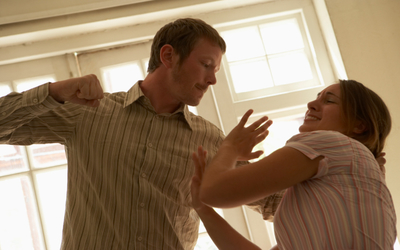Domestic Abuse: The Mental Health of a Batterer
Domestic issues often include events where one person physically, emotionally, or verbally abuses another person. The term “batterer” is applied to the person committing the abuse because the legal term for this type of action is battery.
There are many reasons that a person may turn into a batterer, with most of them relating to the mental health status of that person. Some of the most common mental health issues that cause a person to become a batterer include:
• Victim of Abuse. Many abusive people were once abused as a child. Their anger issues and frustration then are displayed in the same manner when they become an adult.
• Addiction. People that are fighting an addiction will often become abusive so that they can hide or continue their addiction without interference.
• Personality Disorders. Some people have mental health issues that can only be addressed with therapy or medication. These problems, if left unchecked can lead the person to harm others as well as themselves.
• Head Injuries. Most people do not realize that when someone suffers a serious head injury, they can have a change in personality. In fact, most cases show that if there is a change in behavior it is usually in the form of becoming more aggressive.
Does Mental Health Issues Excuse Abuse?
No, having a mental health issue does not excuse abuse, but it does help explain the actions of the batterer. While it may not remove their responsibility for their actions, it is definitely a defense for those actions. However, once established, it is the duty of the person suffering with these mental health issues to seek help.
Help Is Available
There are many different resources for someone who is suffering with mental health issues and has found themselves a batterer. Many of these resources can be accessed at low or no cost, so there is never a reason why a person cannot receive help.
• Therapy. There are many forms of therapy that are available for people to overcome their childhood problems and have more control over their adult lives. Therapy can be anything from a daily session with a therapist to a controlled environment setting. Many therapies are covered under health insurance plans. If you do not have health coverage, many local non-profit groups and churches have the ability to get free treatment for those in need.
• Step Programs. Dealing with an addiction can be very difficult to do alone. There are several different step programs available to help people overcome their addictions. There are also rehabilitation centers for those who think they need around the clock supervision until they conquer their addiction.
• Medical Treatment. Sometimes the problem is an actual physical problem. If this is the case, there are many different medical treatments that can help.
There is a way to stop abuse and to help both parties recover from this type of event in their lives. The person that is performing the battery can find inner peace through many different treatment plans, and the person who was the victim can receive therapy to recover. Addressing this problem from every angle, however, is the only true way to break the cycle of abuse.
At the young age of 19, Melanie Fleury found herself in an abusive relationship that sent her to the hospital for several different injuries. Surprisingly, she does not have any hostility towards her batterer, just sadness and hope that he will receive the help that he needs before he hurts someone and ends up in jail. Powers McCartan PLLC at http://www.powmac.com can help if you have been arrested on a domestic violence charge and help you find the resources you need to help you break the cycle of violence.


Comments are closed.